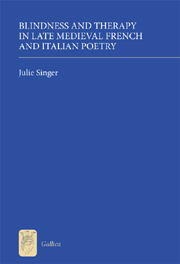Book contents
- Frontmatter
- Contents
- In loving memory of Mrs Doris Patz artist, benefactress, friend
- List of Illustrations
- Acknowledgements
- Introduction: On Rhetoric and Remedy
- Chapter 1 The Love-Imprint
- Chapter 2 Medical Blindness, Rhetorical Insight
- Chapter 3 Irony, or the Therapeutics of Contraries
- Chapter 4 Metaphor as Experimental Medicine
- Chapter 5 Metonymy and Prosthesis
- Chapter 6 Blindfold Synecdoche
- Epilogue. Just Words
- Bibliography
- Index
- Already Published
Chapter 5 - Metonymy and Prosthesis
Published online by Cambridge University Press: 12 September 2012
- Frontmatter
- Contents
- In loving memory of Mrs Doris Patz artist, benefactress, friend
- List of Illustrations
- Acknowledgements
- Introduction: On Rhetoric and Remedy
- Chapter 1 The Love-Imprint
- Chapter 2 Medical Blindness, Rhetorical Insight
- Chapter 3 Irony, or the Therapeutics of Contraries
- Chapter 4 Metaphor as Experimental Medicine
- Chapter 5 Metonymy and Prosthesis
- Chapter 6 Blindfold Synecdoche
- Epilogue. Just Words
- Bibliography
- Index
- Already Published
Summary
The metaphoric operation performed by the Remede de Fortune's Esperance – lending textual abstractions to a tangible body in order to render that body whole – lies at the heart of the most ambitious late medieval attempts at the textual healing of blindness. But even as we recognize such phenomena in the writings of Machaut, we must remember that the starkly contrasting language of abstraction and tangibility is already a problematic framework to attempt to apply to medieval texts and bodies: just as medieval medicine is a theoretical more than a practical discipline, grounded in an abstract schema of complexions and qualities, so too is the late medieval poetic text an increasingly tangible, even corporeal, entity. The fixed form poem's ties to the rhythms and structures of the body enable an innovative healing technique wherein the textual body corrects the lover's physical body by completing it. Unlike metaphor and irony, which involve speaking differently about a problem in order to correct or counterbalance it, this therapeutic strategy consists in the replacement of a missing part with its like, with a related structure or device. In language we call this process of substitution metonymy; in surgery, we call it prosthesis.
Metonymy is defined, in rhetoric, as ‘the action of substituting for a word or phrase denoting an object, action, institution, etc., a word or phrase denoting a property or something associated with it’, or, in less specialized usage, as ‘a thing used or regarded as a substitute for or symbol of something else’; the therapeutic procedure of prosthesis consists of ‘the replacement of defective or absent parts of the body by artificial substitutes’.
- Type
- Chapter
- Information
- Blindness and Therapy in Late Medieval French and Italian Poetry , pp. 147 - 186Publisher: Boydell & BrewerPrint publication year: 2011



